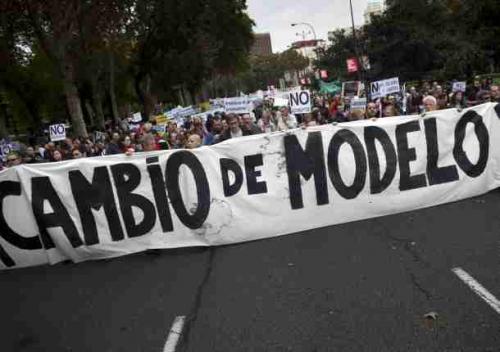Without critical thinking, there is no practice of emancipation
- Opinión

Latin America would not be the victim of the strong right wing offensive, if it were not for the weakness of the Latin American left. A common element in the recuperation of strength by the right has been, for example, their retrieval of the social support bases that progressive governments had won over. Governments that had been elected or re-elected with high levels of electoral support, have been defeated or left with a bare majority support. This is not only a matter of losing support bases of middle-class sectors of the population—although they have also lost these–, but above all, of the loss of popular sectors, direct beneficiaries of the social policies of those governments, which have been retrieved by right-wing forces through intense media campaigns, though also via mechanisms of persecution and political criminalization of the leaders of the left.
As a result, in spite of having a program of government with the potential of having broad popular roots, governments have been defeated or have won by a narrow margin of votes, in the face of a right that cannot compete with this program, because they do not have proposals of social policies. Therefore, the right has to shift the central agenda of these countries toward themes such as corruption, public security or conservative issues of a moral character.
The Latin American left has been hegemonic in countries where they have been able to elect and re-elect governments, all of them anti-neoliberal in essence. Here I am going to focus on one aspect of weakness that has led to the setbacks of these governments: the incapacity of Latin American critical thinking to keep up-to-date with these advances, to have understood their nature, their strengths and their weaknesses, and to have contributed to the analysis of these processes, in order to support them and promote the surmounting of these problems.
In the first decade, sectors of critical thinking, including their principal entities, became involved in governments when they recently came to power. Not all sectors of social thinking participated, some were critical of some aspects of these governments, others totally disconnected from the progressive character of the governments, often joining with the right in opposition.
When progressive governments began to face greater difficulties, with the recuperation of the initiative of the right, the incapacity of the theoretic formulation of the impending crisis made a reaction of the progressive group even more difficult. They were not able to count on broad debates to identify the weaknesses that facilitated the recuperation of right-wing initiative, or the defeat in the dispute on central theoretic and policy issues, such as democracy and the role of the state, among others. A large sector of intellectuals had retreated to the universities, remaining cloistered in their priority themes of analysis, while processes of bureaucratization affected entities that should represent and mobilize critical thinking.
Today, the capacity to understand the present problems of Latin America are concentrated around the principal leaders of the left in the continent, because we cannot separate theoretic approaches from concrete political answers. But also, because these require an understanding in greater depth and scope on the crisis the continent is going through and its perspectives of a positive outcome.
Without the active and creative participation of critical Latin-American thinking, we will not be able to come out of this crisis with sufficient strength to give rise to a new progressive cycle in our countries. At the same time, without concrete political action, critical thinking will be depleted and will not re-engage with truly existing political practice.
6/1/2020
(Translated for ALAI by Jordan Bishop)
– Emir Sader, Brazilian Sociologist and Political Scientist, is the Coordinator of the Laboratory of Public Policy in the State University of Rio de Janeiro (UERJ).
Del mismo autor
- Hay que derrotar políticamente a los militares brasileños 07/04/2022
- China y Trump se fortalecen 04/03/2022
- Pandemia e Ucrânia aceleram decadência da hegemonia norte-americana no mundo 28/02/2022
- Pandemia y Ucrania aceleran la decadencia de la hegemonía norteamericana en el mundo 28/02/2022
- La anti-política generó la fuerza de extrema derecha 22/02/2022
- Las responsabilidades del PT 10/02/2022
- Estados Unidos, más aislado que nunca en América Latina 03/02/2022
- Memoria y olvido en Brasil 27/01/2022
- 2022: tiempos decisivos para Brasil y Colombia 05/01/2022
- Brasil: una historia hecha de pactos de élite 18/12/2021
